Online Safety
ONLINE SAFETY NEWSLETTERS 2024
- Online Safety Newsletter Primary January 2024_Our Lady and St GerardsPDF File
- Online Safety Newsletter Primary February 2024_ Our Lady and St GerardsPDF File
- Online Safety Newsletter Primary March 2024 _ Our Lady and St GerardsPDF File
- Online Safety Newsletter April 2024_ Our Lady and St GerardsPDF File
- Online Safety Newsletter May 2024_ Our Lady and St GerardsPDF File
- Online Safety Newsletter Primary June 2024_Our Lady and St GerardsPDF File
- Online Safety Newsletter Primary July 2024_ Our Lady and St GerardsPDF File
- Online Safety Newsletter September 2024_Our Lady and St GerardsPDF File
- Online Safety Newsletter Primary October 2024_Our Lady and St GerardsPDF File
- Online Safety Newsletter Primary November 2024_Our Lady and St GerardsPDF File
- Online Safety Newsletter December 2024_Our Lady and St Gerards.PDF File
A guide to Parental Controls
This guide will help you set up parental controls to provide your child with a safer online environment. Parental controls can help to protect your child from seeing something that they shouldn’t - although it is important to emphasise that no system is effective all of the time so it is important to engage with your child and talk to them about their online life regularly.
Primary Parents Presentation - Online Safety
ANTI-BULLYING WEEK
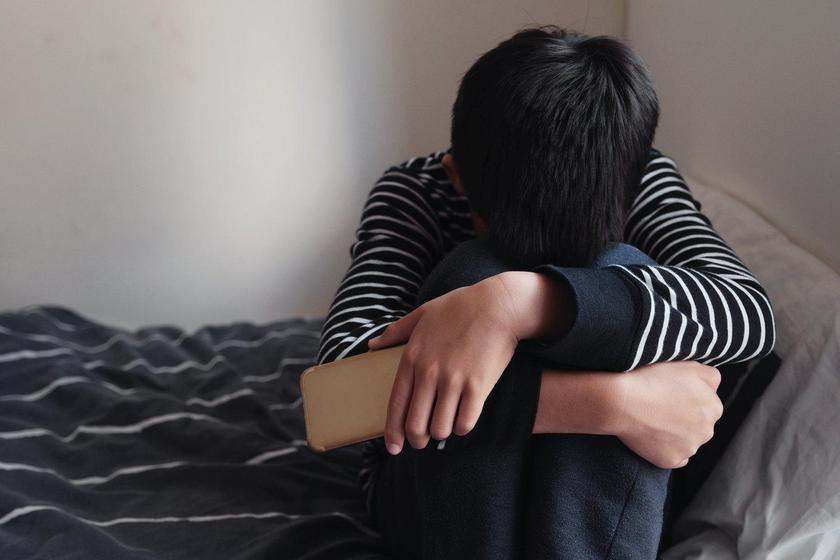
What to do if your child is being bullied online.
To mark #AntiBullyingWeek, Parent Zone have put together some advice for parents who are concerned that their child might be being bullied online, as well as some resources that can help.
Click here to access up-to-date information.
https://www.parents.parentzone.org.uk/morearticles/anti-bullying-week-what-to-do-bullied-online
DID YOU KNOW
If you ever wondered why teaching our children about ONLINE SAFETY is so important, watch this video! Some amazing facts about the Digital World, the Technology Evolution and the changes in society and business World. The digital world has experienced spectacular growth in the last years with Cutting-Edge Exponential Technology advances like robotics, internet of things, autonomous cars, robotics, 5G, Smart cities, artificial intelligence or quantum computing. The challenge for people, the society, governments and businesses is to face the implications of digital change.
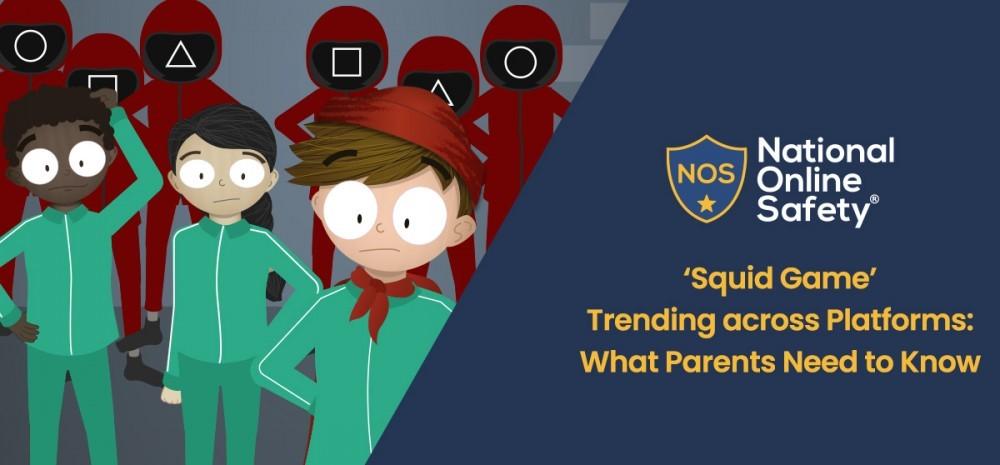
It's time to get #OnlineSafetySavvy
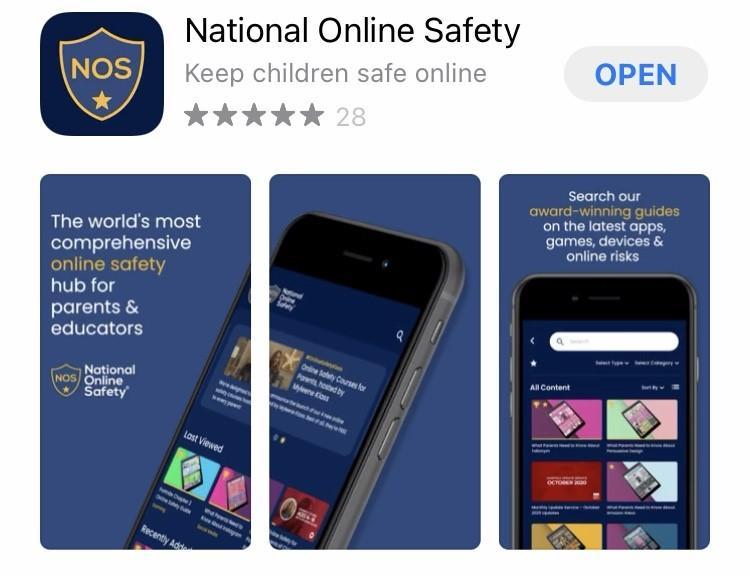
A FREE Online Safety App for Parents & Educators!
National Online Safety are excited to launch their FREE mobile app, giving you access to instant information about the latest apps, games, devices & more.
Download for apple: hubs.ly/H0BwQjL0
Download for android: hubs.ly/H0Bx0tp0
Follow the link below to read a review of this new app:
https://workingdaddy.co.uk/2020/11/25/review-keeping-kids-safe-with-the-national-online-safety-app/
A Safer Online Experience For Children
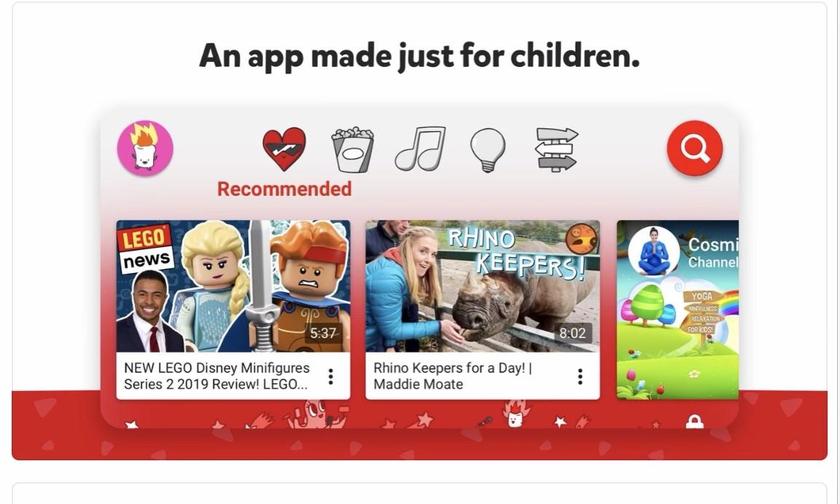
As more and more of our children are using YouTube regularly, we would like to let you know about a safer way for them to navigate this online world.
YouTube Kids was created to give children a more contained environment that makes it simpler and more fun for them to explore on their own, and is easier for parents and caregivers to guide their journey as they discover new and exciting interests along the way.
Please click on the link to find more information and how to download the app.
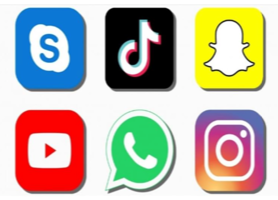
Are you struggling to keep up with all the different apps that your child uses?
The following guide walks you through the six apps that every parent should know about, and what you need to be aware of with each one.
https://parentinfo.org/article/the-6-apps-and-services-that-every-parent-should-know-about

TikTok is a social media app that gives users the opportunity to share 60 second short videos with friends, family or the entire world. Like Twitter-owned Vine and Musical.ly before it, videos shared range from funny sketches to lip-sync videos featuring special effects. Currently, the app is available in 75 languages with 1 billion active users (December 2019). Like Musical.ly before it, it is most popular with under 16s. The recommended age limit to use this without parents’ permission is 13 years old. This is mainly due to the collection and use of its users data.
We are aware that there are a number of our children enjoy this app, but we have recently been alerted to information revealing that there is concern across some countries over the security of the users’ data once collected.
Please click the link below for further information.
Online Safety is an integral part of children’s education in today’s digital world and is embedded in their learning at school. We also want to help our parents and children improve their own understanding of Online Safety issues so they can learn to use the internet and all digital media in a safe and secure way.
At School
As part of your child’s curriculum and the development of computer skills, we provide access to the internet only in teacher supervised lessons. We strongly believe that the use of the web and email is hugely worthwhile and an essential tool for children as they grow up in the modern world. But because there are always concerns about children having access to undesirable materials, we have taken positive steps to deal with this risk in school. Our school internet access provider operates a filtering system that restricts access to inappropriate materials.
We follow the Government’s Education for A Connected World Framework which describes the Digital knowledge and skills that children and young people should have the opportunity to develop at different ages and stages of their lives. It highlights what a child should know in terms of current online technology, its influence on behaviour and development, and what skills they need to be able to navigate it.
The document supports one of the key aims of the government’s Internet Safety Strategy of supporting children to stay safe and make a positive contribution online, as well enabling teachers to develop effective strategies for understanding and handling online risks.
Online Safety At Home
As a parent you'll know how important the internet is to children; they use it to learn, play, socialise and express themselves. It's a highly creative place of amazing opportunities. But the technology children use every day can seem a bit daunting and you might worry about the risks your child can face online - such as bullying, contact from strangers or the possibility of them seeing illegal or inappropriate content.
Engage with your children regarding their use of the internet while at home. Here are some conversation starter ideas from Childnet.com
- Ask your children to tell you about the sites they like to visit and what they enjoy doing online.
- Ask them about how they stay safe online. What tips do they have for you, and where did they learn them? What is OK and not OK to share?
- Ask them if they know where to go for help, where to find the safety advice, privacy settings and how to report or block on the services they use.
- Encourage them to help. Perhaps they can show you how to do something better online or they might have a friend who would benefit from their help and support.
- Think about how you use the internet as a family. What could you do to get more out of the internet together and further enjoy your lives online
In the recent and forthcoming weeks, as young people have been and are continuing to be spending more time at home, with their families, and on devices, Childnet.com have pulled together a list of resources that you can use with them to explore online safety in a fun, engaging and educational way.
Or alternatively click on the link below to access 15 minute activities that you can do with your child to support their online safety at home. These activities have been produced by Thinkuknow (delivered by CEOP) and are specific to year groups.
NOS have launched their #WakeUpWednesday campaign across Facebook and Twitter to provide one free online safety guide each week to schools, parents, children, carers and trusted adults across the United Kingdom.
Here are a few very useful and user-friendly guides:
- Age Ratings - Online Safety Guide For Parents.PDF File
- YouTube Kids Online Safety Guide.PDF File
- Safer Apps and Games For Children.PDF File
- Online Safety Tips For Children.PDF File
- Little Reminders Of How To Be Kind Online.PDF File
- How To Maintain Good Mental Wellbeing During Isolation.PDF File
- What Parents Need To Know About Netflix.PDF File
- What Parents Need To Know About Disney+.PDF File
- What Parents Need To Know About Zoom.PDF File
- Apple Parent Controls Guide.PDF File
- Parental Guide - Xboxone.PDF File
- Parental Guide - Playstation.PDF File
- Parental Guide - Nintendo3DS.PDF File
- Digital_Parenting_6_0PDF File
- Conversation Starters 2017.PDF File
- E-Safety Family Fun Booklet.PDF File
- How to Stay Safe on the Internet Guidebook1.PDF File
- Safer Internet Day Quiz.PDF File
- Digiduck e-Book.PDF File
Top Tips and Useful Information for Parents
Please find below a list of helpful information and links which provide safety advice and checklists to support online safety and raise awareness for children and family members.
Useful Links
CEOP helps any child or young person under the age of 18 who is being pressured, forced or tricked into taking part in sexual activity of any kind. This can be something that has taken place either online or in ‘the real world’, or both. The CEOP Safety Centre has clear information and advice on what can be reported to CEOP, the reporting process and what will happen if you do decide to make a report. You can visit the CEOP Safety Centre and make a report directly to CEOP by clicking the Click CEOP button.


